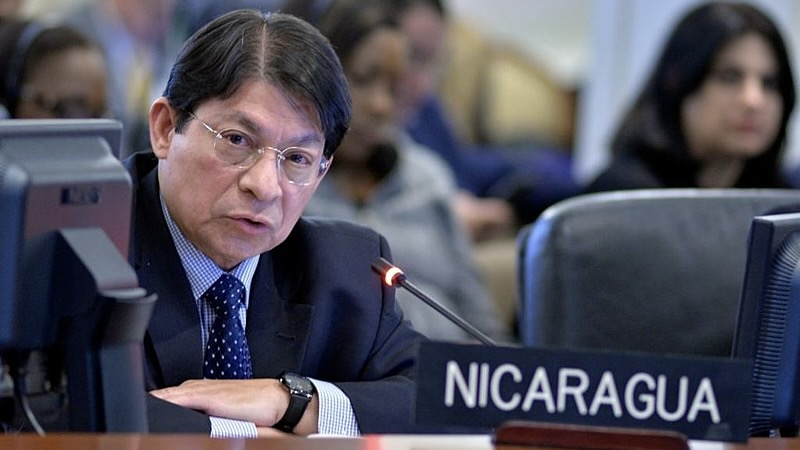Nicaragua has officially withdrawn from the Organization of American States (OAS), closing the organization’s regional office in its capital, Managua, and announcing its absence from the upcoming deliberative spaces. In November, the Nicaraguan government had already sent a letter to OAS Secretary General Luis Almagro, communicating its intention to leave the regional alliance.
“We ratify our decision of November 19, 2021 to leave the OAS. We also communicate that as of that date we will not be part of this deceitful agency or any of its bodies, such as the Permanent Council, Commissions, meetings or the Summit of the Americas,” Nicaragua said in a statement on Sunday April 24.
In the same text, they characterize the OAS as “one of the political instruments of intervention and domination of the US State Department.”
The OAS which was founded 73 years ago in theory is supposed to bring together all 35 countries of the American continent. Several Latin American countries have denounced the body’s close involvement with coups in the region, as in Bolivia in 2019, and in other destabilizing efforts, such as the recognition of self-proclaimed President Juan Guaidó in Venezuela.
In November last year, the OAS did not recognize the legitimacy of Daniel Ortega’s (FSLN) electoral victory for his 5th term as president with 75.8% of the vote.
Nicaragua is the second country, after Venezuela, to voluntarily withdraw from the OAS. The withdrawal process, foreseen in the organization’s founding charter, establishes a two-year period for a member nation to notify its intention and withdraw from the OAS, but Nicaragua was ahead of schedule and closed the OAS regional office only five months after notifying its withdrawal.
The direct consequences of leaving the organization depend on the Nicaraguan state’s relationship with other multilateral organizations. Nicaragua also loses its representation in the Inter-American Court and Commission on Human Rights, as well as, theoretically, it would not be able to access financing and credit from the Inter-American Development Bank (IDB).
The Bolivarian Alliance of the Peoples of Our America (ALBA-TCP) called the decision of the Nicaraguan government “dignified, coherent, and sovereign”. In a statement, they wrote “we condemn the attacks and repeated attempts at destabilization against the legitimate government of the Republic of Nicaragua.”
This article first appeared in Portuguese on Brasil de Fato.





